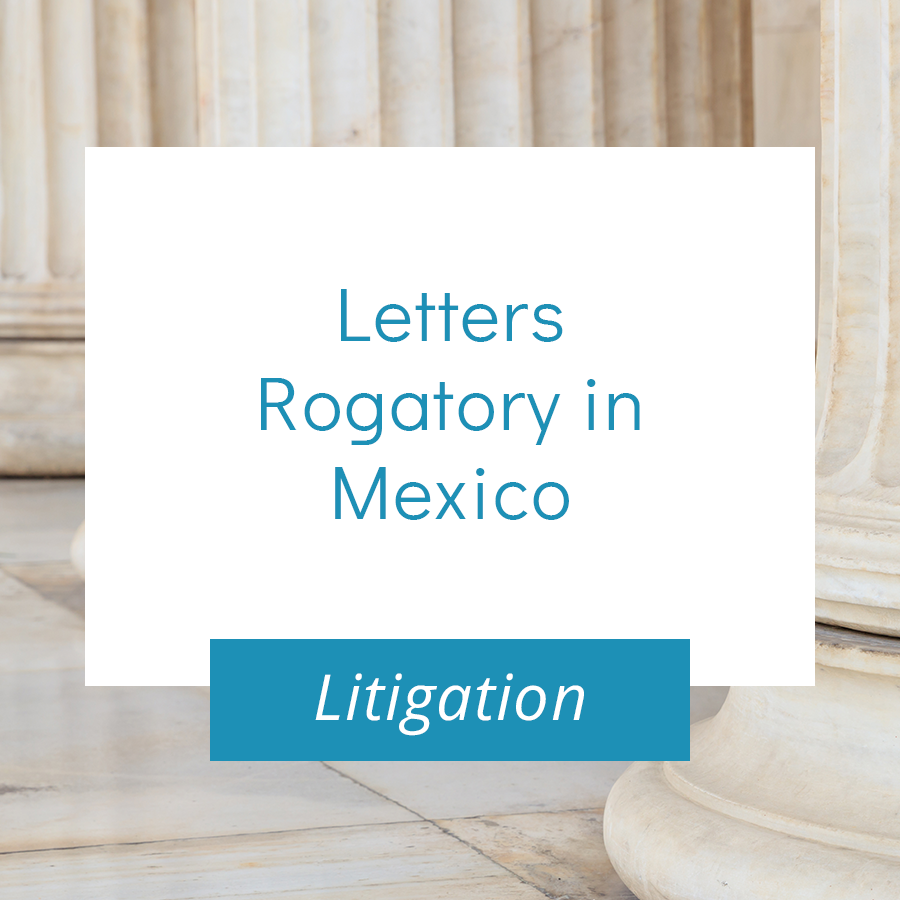Letters Rogatory Explained: Facilitating Legal Collaboration In Between Countries

Meaning of Letters Rogatory
Letters rogatory are official demands made by a court in one jurisdiction to a court in an additional jurisdiction, seeking aid in acquiring evidence or statement for a legal action. This procedural device is crucial in the context of international legislation, where lawful systems might vary, and cross-border collaboration is needed. Letters rogatory promote the event of information that might be vital for settling situations, especially in instances involving complex multinational concerns.
Generally, these demands arise in civil, criminal, or administrative matters where a celebration needs proof that is situated outside the jurisdiction of the requesting court. The letters act as a way to make certain that the concepts of due procedure are upheld, enabling courts to gain access to proof that could or else continue to be unattainable due to geographic or legal obstacles.
Using letters rogatory is regulated by worldwide treaties, bilateral contracts, or residential legislations, which define the procedures and obligations of the courts involved. It is essential to note that the execution of such demands is not assured; they depend on the legislations and techniques of the jurisdiction receiving the letter. Hence, letters rogatory are an essential device for promoting legal collaboration and making certain justice throughout boundaries.
The Refine of Issuing Letters Rogatory
Issuing letters rogatory includes a structured procedure that ensures conformity with both international and residential lawful requirements. The asking for celebration, normally a court or lawful authority, composes an official request describing the nature of the help sought, the proof or info needed, and the lawful basis for the request. This record should be accurate to facilitate understanding by the international jurisdiction.

The following step includes transmitting the letters rogatory to the designated international authority. This is frequently done through diplomatic networks or global lawful help frameworks, guaranteeing that the request is obtained and recognized by the international court. The foreign court then refines the request according to its own legal treatments, eventually reacting to the requesting party with the in-demand details or proof, therefore promoting international lawful collaboration.
Significance in International Law
The relevance of letters rogatory in global legislation can not be overemphasized, as they function as a vital system for judicial cooperation throughout borders. These formal ask for aid in legal issues allow courts in one territory to seek details, evidence, or the visibility of witnesses from one more territory, consequently facilitating the management of justice in transnational cases.
Letters rogatory are specifically crucial in the context of globalization, where legal disputes frequently extend multiple nations. They enable the collection of proof that may otherwise be hard to reach, ensuring that lawful proceedings are educated and fair. By cultivating collaboration in between judicial systems, letters rogatory aid maintain the guideline of regulation and promote shared regard among countries.
Additionally, using letters rogatory shows a dedication to worldwide standards and concepts of collaboration, mirroring the interconnected nature of modern lawful practices. It shows the relevance of adhering to well established procedures Get the facts and treaties, such as the Hague Convention, which supplies a structure for these requests - Letters rogatory. Ultimately, letters rogatory improve the efficiency of legal processes, making certain that justice is not prevented by geographical boundaries
Difficulties and Limitations
In spite of their value, letters rogatory face several obstacles and limitations that can impede their efficiency. One primary problem is the varying legal frameworks and treatments across jurisdictions, which can lead to misconceptions and hold-ups in the execution of demands. Various countries might have distinctive demands for the validity of letters rogatory, making complex the process further.
Furthermore, the often drawn-out nature of global lawful cooperation can impede timely access to evidence or witnesses. This delay might negatively affect lawful procedures or recurring investigations, particularly in cases calling for read urgent activity. The absence of sources and training in some territories can result in not enough handling of requests, leading to inadequate or incomplete actions.
Countries with less formal lawful systems might struggle to comply with the procedural roughness expected in letters rogatory. These challenges demand continuous discussion and reform to boost the efficiency of letters rogatory in legal participation.
Study and Examples

Alternatively, challenges can occur, as seen in a case involving a European country looking for evidence in a recurring criminal matter from a non-EU nation - Letters rogatory. The procedure was postponed because of governmental hurdles and differing legal criteria, ultimately impeding the examination
These instances illustrate that while letters rogatory can help with global cooperation and accelerate lawful process, they also highlight the need for clear communication and understanding of lawful structures in between nations. Such study highlight the value of refining this device to enhance effectiveness and efficiency in global legal matters.
Final Thought
In recap, letters rogatory offer as a crucial device for promoting lawful collaboration between nations, making sure the collection of proof and statement across territories. Their relevance in worldwide regulation can not be overstated, as they advertise due process and enhance the effectiveness of cross-border legal process.
Letters rogatory are formal demands made by a court in one territory to a court in another territory, seeking assistance in acquiring proof or testament for a lawful proceeding. The asking for celebration, typically a court or legal authority, prepares page an official request outlining the nature of the support looked for, the evidence or details needed, and the lawful basis for the demand. The foreign court after that processes the demand according to its own lawful procedures, eventually responding to the requesting event with the in-demand information or evidence, thus promoting worldwide lawful collaboration.
In addition, the usage of letters rogatory demonstrates a dedication to international norms and concepts of cooperation, reflecting the interconnected nature of modern-day lawful methods.Global lawful collaboration with letters rogatory is not without its real-world implications, as shown by numerous case research studies that highlight both successes and obstacles.
Comments on “A Detailed Introduction of Letters Rogatory and Their Legal Implications”